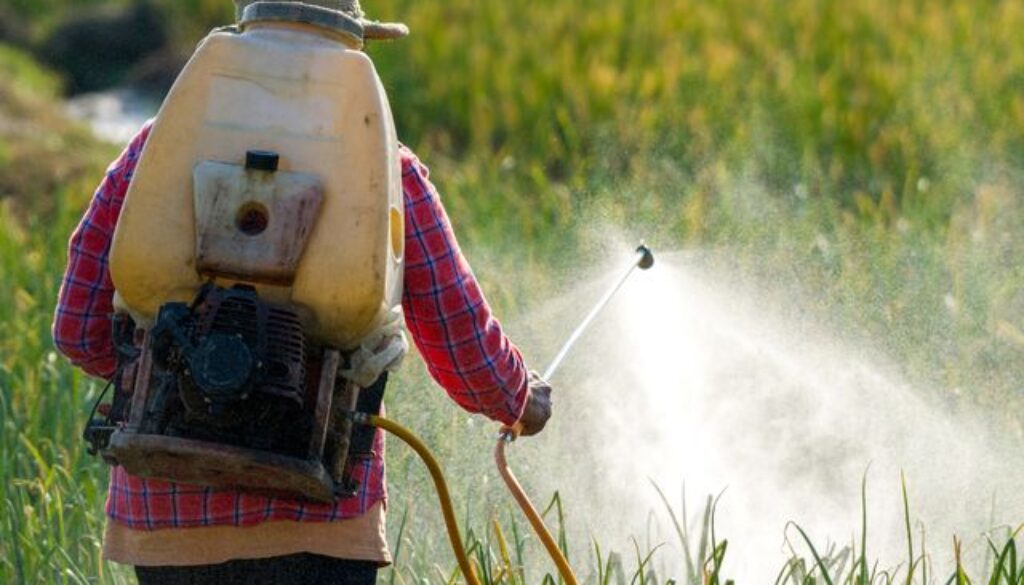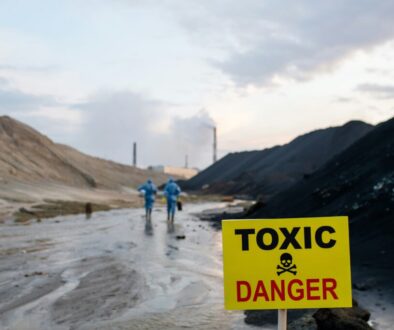Guest column: Farmers Need Safe, Effective Pesticides, Including Chlorpyrifos

By Stephen Censky
Our food supply needs pesticides – it’s as simple as that. Without access to these tools, US and global agriculture could not sustainably feed the world. Furthermore, attempts to do so would likely lead to environmental catastrophe. It is true that some production methods, such as organic, may use fewer pesticides than conventional agriculture—although, even organic producers can and do use some pesticides. However, contrary to popular belief, pesticides are responsible for significantly improving environmental outcomes in agriculture.
A 2021 meta-analysis found conventional crops averaged a 25% greater yield than their organic counterparts, with cereal crops reaching a 30% average yield gap. This means if we were to switch our entire food production system to organic, we would need to put at least 25% more land—hundreds of millions of acres—into agricultural production to feed the planet’s existing population, to say nothing of a rapidly growing global population. Pesticides also make possible many important conservation practices used by farmers, such as cover crops and no-till soil management. These pesticide-supported practices sequester carbon in the soil, reduce soil erosion, minimize nutrient losses to rivers and streams, among other benefits.
A 2020 study found global use of herbicide-tolerant crops enabled farmers through these conservation practices to remove the equivalent of more than 15 million cars from the road in one year’s time. To end farmer access to these tools and the benefits they offer would be a disaster for the environment.
One of the reasons for these environmental gains and the productivity gap is the ability of farmers to use pesticides to protect their crops from insects, weeds, molds, and other pests that attack our food or enjoy eating it as much as we do. And one of these important tools a pesticide called chlorpyrifos. Soybean growers have used chlorpyrifos for years to protect crops from aphids, spider mites, stink bugs, and other insects. Some of these pests can inflict yield losses as high as 60% if left unchecked. And it’s not just soybeans. Chlorpyrifos is registered for use on more than 50 crops, many of which need this tool as much as soybean growers.
While soybean farmers enjoy the ability to use these tools, we want to ensure they are well regulated and safe for humans and the environment. That’s why we support a robust, science-based regulatory system for pesticides at the Environmental Protection Agency (EPA).
As part of its ongoing review of chlorpyrifos, EPA’s career scientists published a document in December 2020 finding that, after reviewing all the data and using heightened food safety standards, there existed 11 high-benefit crop uses that “the agency has determined will not pose potential risks of concern… and may be considered for retention.” Soybeans were one of those 11 crops. Likewise, in August 2021, regarding food exposures, “the Agency did not identify risks of concern.”
We enjoy an abundant, sustainable food supply because our farmers have safe, well-regulated tools to protect their crops. We should continue to innovate and always strive to develop better, safer, lower-impact tools to further improve sustainability. However, if agriculture loses access to pesticides, including chlorpyrifos, farmers’ ability to feed the world while protecting the environment will be what suffers most.
(Editor’s note: The EPA said in February it was moving to discontinue use of chlorpyrifos on food, saying the pesticide “has been found to inhibit an enzyme, which leads to neurotoxicity, and has also been associated with potential neurodevelopmental effects in children.”
(Opinion columns published in The New Lede represent the views of the individual(s) authoring the columns and not necessarily the perspectives of EWG or TNL editors.)
 EWG
EWG



August 7, 2022 @ 9:21 pm
feed the world “what”? cpf’s, glyphosate, pcb’s, paraquat—greed. the pu$her$, the chemical industry (ie: ‘corporate-farmers’) care-nothing for mother earth and her children, much-less are they concerned about hungry children—hollow man in a suit selling fear-of-hunger carnival-barking “it’s simple, we need pesticides to feed the world”. at best, willfull ignorance, worst—well, look at the hideous, grotesque transcript/record of the pu$hers
of non-sustainable agriculture.
August 3, 2022 @ 2:43 pm
Our soybean farmers are addicted to pesticides. The industry meme our farmers need to feed the world is pure propaganda. The world doesn’t need more people eating the diet that has made North Americans some of the sickest people on the planet. If we want to see the world fed, we need to help local people provide for themselves by raising their food locally with more fruits and vegetables and less low nutrient commodity crops like corn and soybeans. The idea that putting toxic pesticides on food is a good thing is about profits for pesticide companies, not feeding the world.
August 3, 2022 @ 10:26 am
So, our soybean growers want to continue to use chlorpyrifos? and the CEO of the American Soybean Association is supporting its continued use by referencing research paid for by Bayer Crop Science? after the EPA already banned it in response to farmworker advocates and labor and health groups?
These lobby groups don’t really seem to be concerned with human health or the environment – and I don’t think they’re concerned with the health of the farmers they’re supposed to represent.